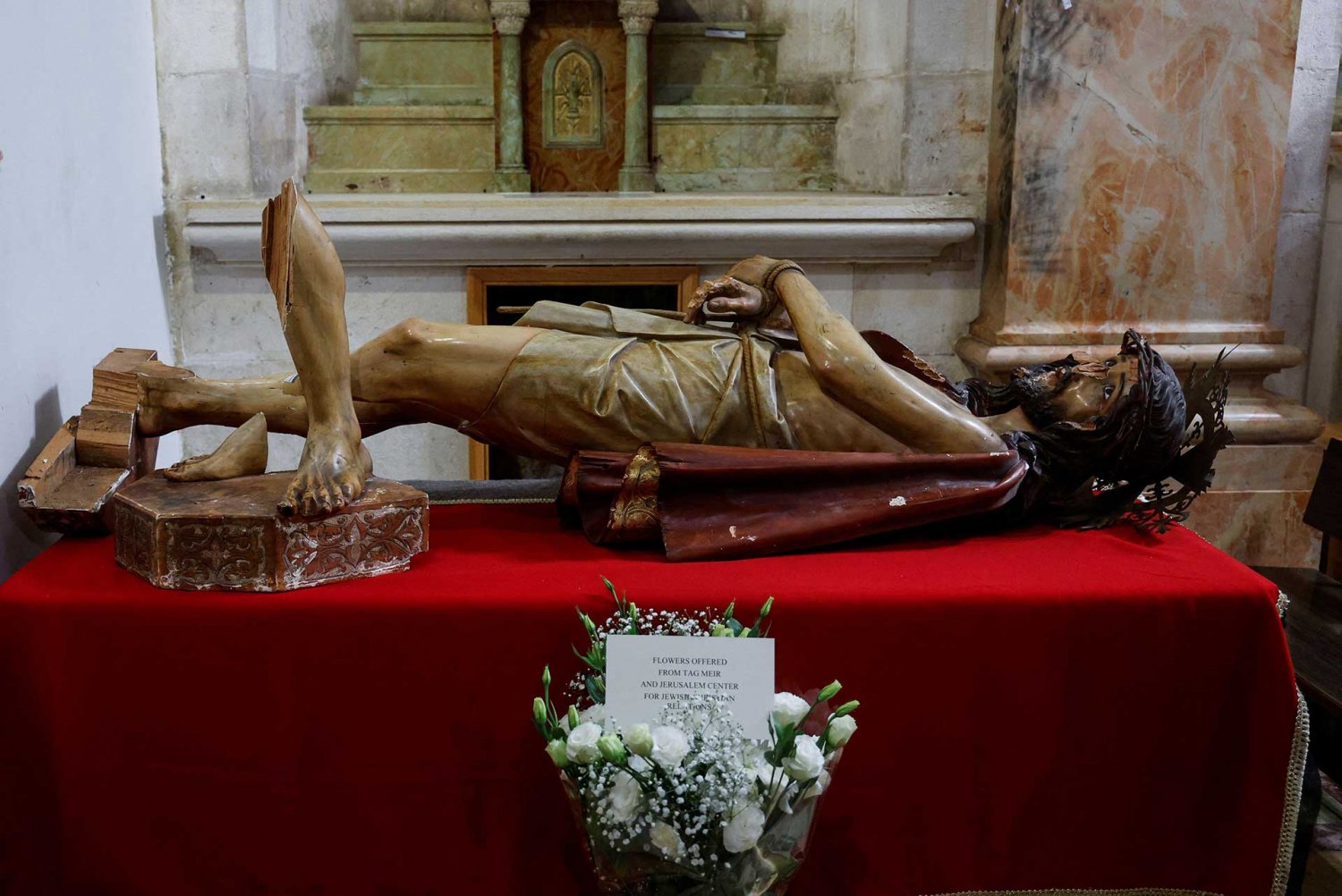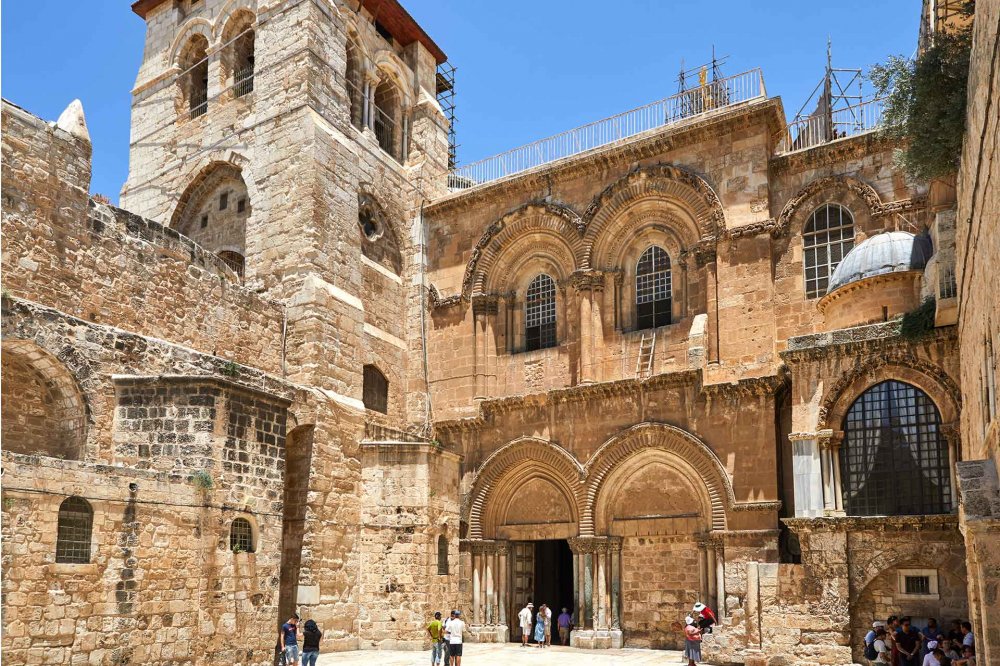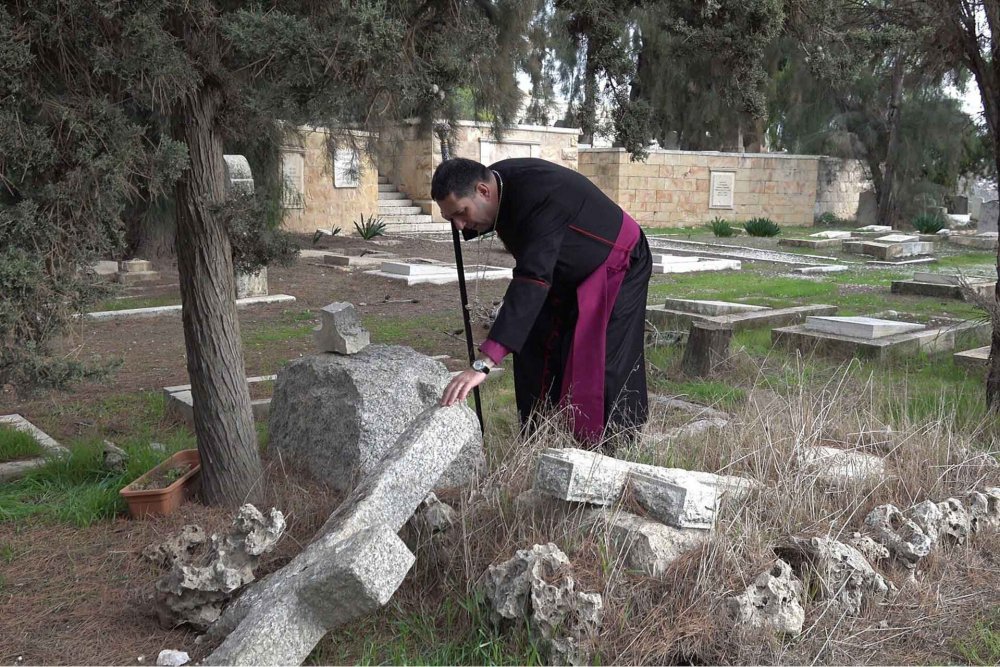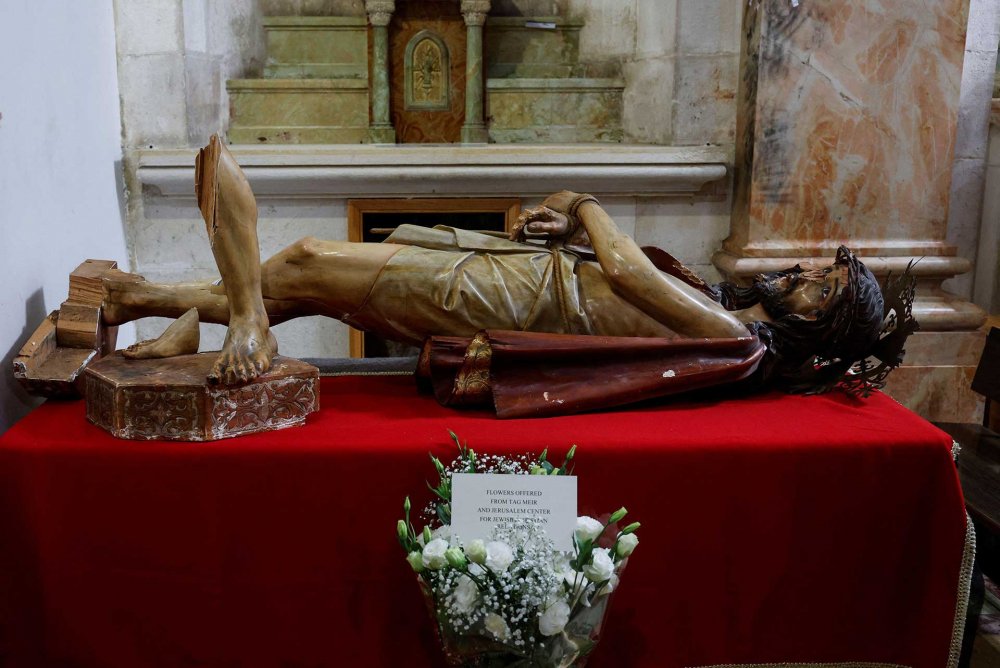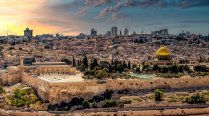Just five weeks into the new year, this was the fifth attack against Christians, their places of worship, and their properties in the Holy Land, compared with 13 in the whole of 2020 and 9 in 2021, according to figures collected by the Jerusalem Inter-church Center and the Protecting Holy Land Christians campaign, which covers various Christian churches.16 In a statement, the Latin Patriarch of Jerusalem said, “It is no coincidence that the legitimation of discrimination and violence in public opinion and in the current Israeli political environment also translates into acts of hatred and violence against the Christian community.”
“Welcome to the new Christian-hating Israel, encouraged and supported by the current government!” tweeted Father Nikodemus Schnabel of the Dormition Abbey, just outside the Old City walls of Jerusalem.17
Speaking with Jerusalem Story, Dimitri Diliani, the head of the Jerusalem-based National Christian National Coalition of the Holy Land, expressed concern that the repeated Israeli attacks are “aimed at weakening the Christian presence in Jerusalem and especially in the Old City.” He said, “They aim to remove the Christians from the Muslim-Christian Palestinian identity, and anyone who is not a Jew is a target.”18
The leaders of Christian churches in Jerusalem, including the Greek Orthodox Church, Catholic Church, and others, have spoken publicly about the mounting challenges faced by Christian communities in Jerusalem.
A statement issued on April 1 by church leaders charged that the Israeli authorities have reneged on promises of protection:

